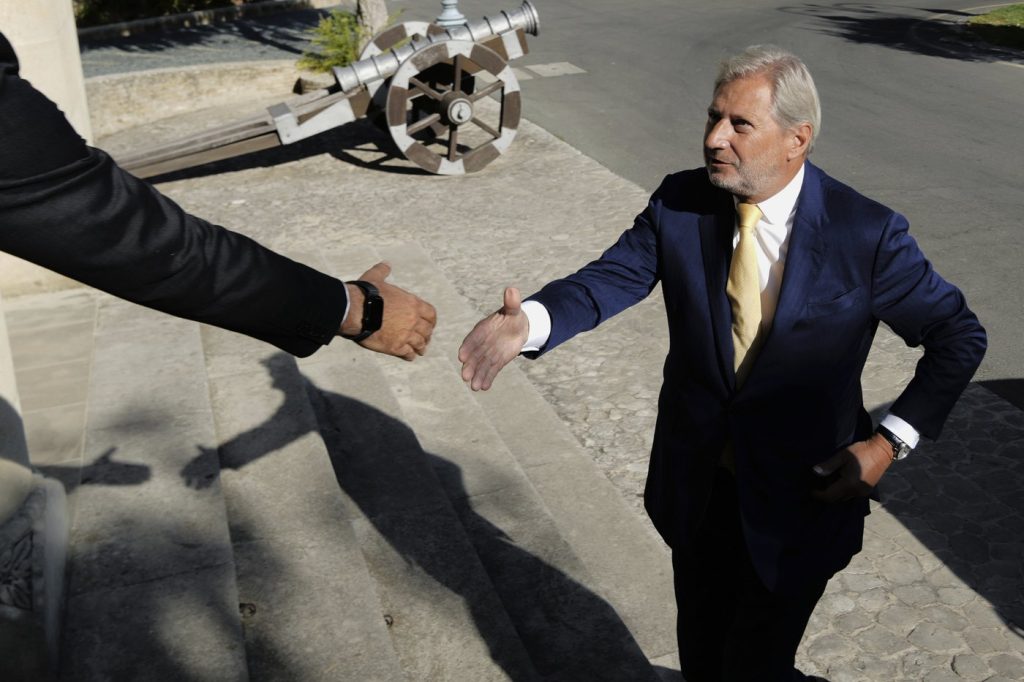NICOSIA, Cyprus (AP) - The European Union has an opportunity to play a significant role in resolving Cyprus's longstanding ethnic division, which has persisted for nearly five decades. Officials have expressed hope that by emphasizing the potential benefits of a peace accord, the EU can foster improved relations between all parties involved in the dispute. Johannes Hahn, the EU envoy for Cyprus, conducted his first meeting with Cypriot President Nikos Christodoulides on Tuesday, marking an important step toward reviving stalled negotiations that have been under the auspices of the United Nations.
The division of Cyprus occurred in 1974 when Turkey invaded the island, following a coup that aimed to unite Cyprus with Greece. Since then, the island has been divided along ethnic lines, with Turkey being the only nation to recognize the Turkish Cypriot declaration of independence made in 1983 for the northern part of Cyprus. Presently, Turkey maintains a military presence on the island, with over 35,000 troops stationed there.
During his discussion with President Christodoulides, Hahn pledged to connect with all relevant stakeholders, including Turkey, in efforts to bolster confidence and support for peace initiatives led by Maria Angela Holguin, the U.N. envoy for Cyprus appointed by Secretary-General Antonio Guterres. When questioned about how the EU could bridge the starkly opposing positions of the Greek Cypriots and Turkish Cypriots, Hahn noted that all parties have specific interests related to the EU, which he aims to understand through ongoing meetings.
Despite Cyprus joining the EU in 2004, only the southern part inhabited by Greek Cypriots, where the internationally recognized government operates, enjoys full membership benefits. Turkey, which began its EU accession negotiations in 2005, has seen its progress stalled due to its refusal to recognize the Cypriot government as the sole legitimate authority of the island. Turkey remains interested in advancing its visa liberalization talks with the EU, which commenced in 2013.
The Cypriot government has expressed its support for closer ties between the EU and Turkey, provided there is clear progress in the Cyprus peace talks. However, the major obstacle to rekindling these negotiations lies in the insistence of Turkey and Turkish Cypriot leaders on a two-state solution, which contradicts the peace framework supported by the U.N. Security Council. This framework envisions Cyprus as a federation with both Greek-speaking and Turkish-speaking zones.
Greek Cypriots firmly reject any proposal that would formalize partition, as they perceive such agreements as a threat that could lead to Turkey exerting control over the entire island. There are also concerns regarding Turkey's demands for a permanent military presence and intervention rights in Cyprus. Additionally, Turkish authorities insist that Turkish Cypriots should hold veto rights over all decisions made by the federal government. As discussions continue, the complexities of this multifaceted conflict remain at the forefront of diplomatic efforts to achieve a lasting resolution.











